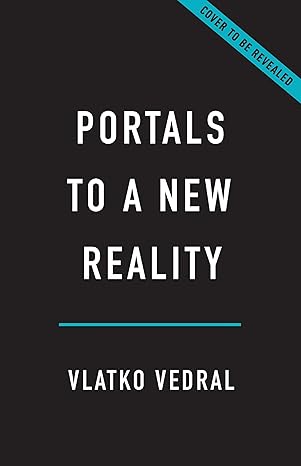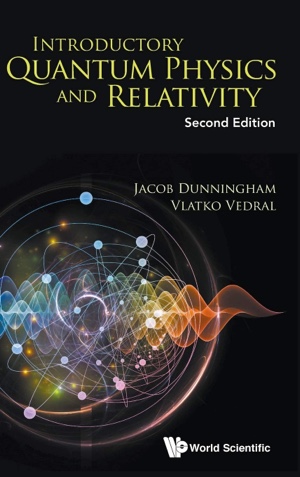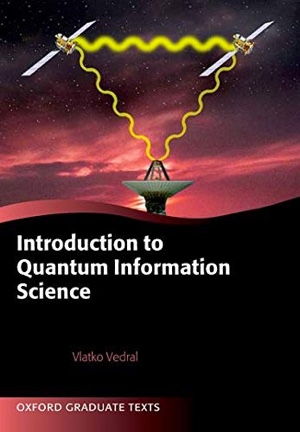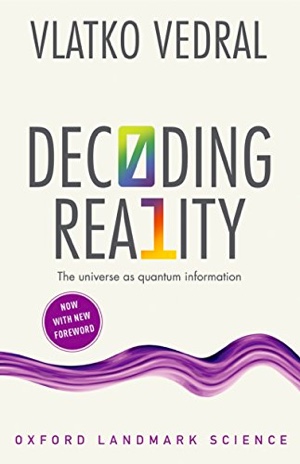Why Quantum?
Good wine and weather, brought them all together. It was you that set the spirit free…
I of course mean the Ancient Greeks. What an amazing bunch of people that was! Every time I read another history of their philosophy (and I am reading one now) it reminds me of how many “thinking devices” they invented that we still use nowadays. They were so creative, that one wonders whether, aside from our science and technology, we have actually intellectually advanced much further than them.
Take the “reductio ad absurdum” for example. It’s a method of proving that something’s got to be the case by supposing the opposite and arriving at a contradiction (reducing the assumption to an absurd conclusion, hence the name). There is a passage in Plato where he wants to prove that in the world of forms, there is only one of each perfect things. There are many cats in our world, but there is only one perfect form of a cat in Plato’s world of ideas. All real-world cats are just imperfect copies of the ideal cat. And so on, Plato would say, with everything else we encounter (I am oversimplifying Plato a smidgeon just to get the point across).
How did Plato prove that there was only one ideal perfect cat? By supposing that this was not true. Start by assuming that there are two such cats. But then surely, says Plato, they would both have to be made in resemblance to yet another more perfect cat. Hence a contradiction, and there can be only one such perfect cat. While Plato wasn’t the inventor of this trick of starting by denying what ones wants to prove (perhaps it was Pythagoras, when proving that there is no largest prime number, or even someone before him), he used it much in his own dialogues and brought it to the masses.
They say that it was the Renaissance that unshackled the human spirit from the vial hold of the medieval Christianity (the name renaissance means rebirth, or spiritually, a reawakening). But that reawakening probably happened when it did because of the fall of the Byzantium, which flooded Europe with the Ancient Greek texts from the Middle East that did not exist in Europe. It was then that the medieval Italians (there was no Italy then, but let’s call them like that) realised how stupid the Middle Ages have made them in comparison to the Ancient Greeks. It was the frantic consumption of the Ancient Greeks text after the fall of the Byzantium that set their spirit free prompting them to start the Renaissance and leading the rest of us into the modernity.
I must admit I envy Plato and that ancient bunch. They had the fantastic Mediterranean climate, tasty food and wine, were great sailors, warriors and statesmen. But, above all, they would discuss important philosophical issues out in the Agora while eating and drinking copiously (they called these gatherings Symposia – literary meaning drinking together, and I strongly feel that our modern-day scientific symposia are rather poor copies of the what the Old Greeks used to do).
But there is one Ancient Greek idea above all, I think, which set us on the path of science. (Yes, we scientist definitely owe it to them too). It is that every phenomenon needs a reason. Nothing can be just so! It is not enough to note that the sky is blue, and the earth is a sphere, we need to explain why this is so. And, explain we can, for both have good reasons for being the way they are. The Ancient Greeks were confident that everything has to be explained and can – in fact – be explained purely by reason (Leibniz, some two millennia later, lifted this idea from the Old Greeks, refined it a bit, and called it the “principle of sufficient reason”).
But what surprised me the other day, is that I came across an argument by one of the pre-Socratic philosophers (I think it was Thales) that effectively amounts to using symmetry in order to argue for conservation.
‘What?’, I hear you say. Symmetries imply conservation? Yes, we know this well in physics, but we attribute the result (not to Thales but) to an early twentieth century German mathematician called Emmy Noether. She proved that if the laws of physics have certain symmetries (in other words, if they remain the same when we change some things in the equations), then momentum, angular momentum, energy and so on are actually conserved (meaning that they always have the same value). This is a surprising and profound result. It underpins much of modern physics and the way we think about it. I will tell you more in a minute, but let me first wax a bit more lyrical about the ancients.
The ancient Greeks didn’t have the mathematical sophistication of Noether (although they were not bad either), nor did they understand physics the way a turn-of-the-twentieth-century physicist did (if anything, their physics was worse than their maths). However, the germ of the symmetry-implies-conservation idea was already there. They gave us the key idea.
Thales, for instance, wanted to explain why the Earth is stationary at the centre of the universe (yeah, I know, I did warn you that their physics was a bit rubbish). It was not enough for him to observe that the earth seems to be stationary and, at the centre, but he wanted to explain why this is so. His answer: because the universe is the same in every direction! Which means, why would the earth prefer to go in one direction rather than another since they are all the same? It is for this reason (the symmetry of the universe, so that it is the same in all directions) that the earth stays where it is, in the centre. This logic is so beautiful that all the misconceptions regarding the position and motion of earth are immediately forgiven.
If you understood this idea, you are ready to understand what we call a conservation of momentum. A particle moving in the empty space continues to move at the same speed (momentum is just the product of its mass and its speed). Why? Because the empty space is the same everywhere! If a particle stopped or slowed down (or sped up) at some point, then this point would be special compared to all other points. But there is no such special point if the universe is everywhere the same. Ergo, momentum is conserved.
You might be thinking that this momentum argument is due to Thales too. However, it is – in fact – also our best modern argument for momentum conservation due to the lady mathematician I mentioned earlier. The fact that space is the same everywhere is called translational symmetry (the laws of physics are the same here and if we were to displace everything 100 meters away from here). And, momentum conservation is a consequence of this.
The laws of physics are presumably the same now, as they will be in a 100 seconds time. If you assume this, if you assume that the universe remains the same if everything is displaced in time, you will conclude that the overall energy is conserved. Amazing! Energy conservation follows from the fact that no instant in time is different to any other instant in time (if energy increased at a particular time, then that instance would be special, which contradicts our assumption that all times are the same – notice the reductio ad absurdum all over the place). Thales didn’t know that either (for starters, he didn’t know energy was conserved, nor even what energy was), but he would get the logic in an instant if we could bring him back from the dead (I wish).
Yes, we definitely know more than Thales and his philosopher buddies did. We now have a remarkably accurate theory, called quantum physics, which has stood the test of time and can explain everything that we have ever observed so far (modulo gravity, but this is probably just a question of time as I’ve argued elsewhere). However, something tells me that if Thales were back, after patiently listening to all our evidence for quantum physics, he would still almost certainly ask us: but why is the ultimate reality (from our current vantage point at least) quantum mechanical?
Why indeed? We don’t know. We would have to admit to Thales that we simply don’t know. In other words, we don’t have a simple principle from which to argue that the world must be quantum the way that Thales argued for the central position of the motionless earth.
Is there such a principle? Many of us believe that there is, and some of us believe that it is information-theoretic in nature. I’ve written much on this topic and I haven’t got anything new to say. But what I can tell you about, is how energy and momentum conservation work in quantum physics.
It won’t surprise you to hear that both are conserved in quantum physics too. However, while classically energy and momentum are just ordinary numbers, with quantum physics, they become matrices (which I have written about in many of my blogs). We need many numbers at the same time to characterise them both. It is for this reason – mathematically speaking – that you cannot specify the position and the momentum of a particle at the same time, or why measuring one and then the other is not the same in reverse.
Now, however, we seem to encounter a problem. Suppose we make a state of light which is a superposition of 0 and 10 photons. This is a possibility in quantum physics since whenever we have two allowed states (0 and 10) their superposition is also allowed. The average energy is 5 photons worth. Then we measure this state to check the number of photons. Now there is a probability that we obtain 10 photons, which is twice as much energy as we started with!
Hang on a minute, you say. There is also a probability that we get 0 photons, which is less energy than we started with. This too seems to violate energy conservation. But on average (half the times zero and half the times 10) the energy is certainly conserved. So is the energy only conserved on average in quantum physics?
This would indeed be a weird state of affairs. In each particular run of the experiment, we would violate the energy conservation (sometimes gaining, sometimes losing), but – when we average over all the trials – energy conservation would seem to be restored.
It seems to me that this is not a satisfactory state of affairs. For starters, we didn’t include the measurement apparatus in our considerations. We only looked at the energy contained in the state so light, but didn’t include the energy required to measure it. When 10 photons are detected, the apparatus absorbs them at the expense of the field losing them. If you follow this logic and take a quantum apparatus into consideration, you will actually realise that energy is conserved exactly even in quantum physics, and not just on average.
There is a great deal of debate about issues such as this one, but all the apparent problems (like a potential non-conservation of energy) arise – it seems to me – when we treat half of the things quantumly and the other half classically. This is the origin of most of our discussions regarding the foundations of quantum physics and all the apparent problems – in my view – disappear if we think of the whole universe as being quantum.
But this brings us back to the question “why quantum?”. As I said, we don’t know, but we can always speculate. After all, the Ancient speculated in most creative ways and that’s what ultimately empowered us. What would Thales have said about quantum physics? My feeling is that he would say something like this. If you have two situations that you cannot tell apart, such as a photon arriving to us from one slit or another, then you have to acknowledge that both could be true at the same time. It is this democratic principle (which would definitely appeal to the Greeks who invented democracy) that is at the core of the superposition principle. If there is no reason to have zero photons rather than 10 photons, then probably we should have a superposition of the two. Anything that’s not prohibited should exist!
Admittedly this logic is far from watertight, but remember that that’s not the point. It’s important to keep asking for reasons for everything, because – if it is to be judged by the last two and a half millennia – there always is a reason. And finding it – even approximately, as we have been doing – enriches us in more ways than one.
Sign up to my substack
BOOKS
ASK ME ANYTHING!
If you'd like to ask me a question or discuss my research then please get in touch.





